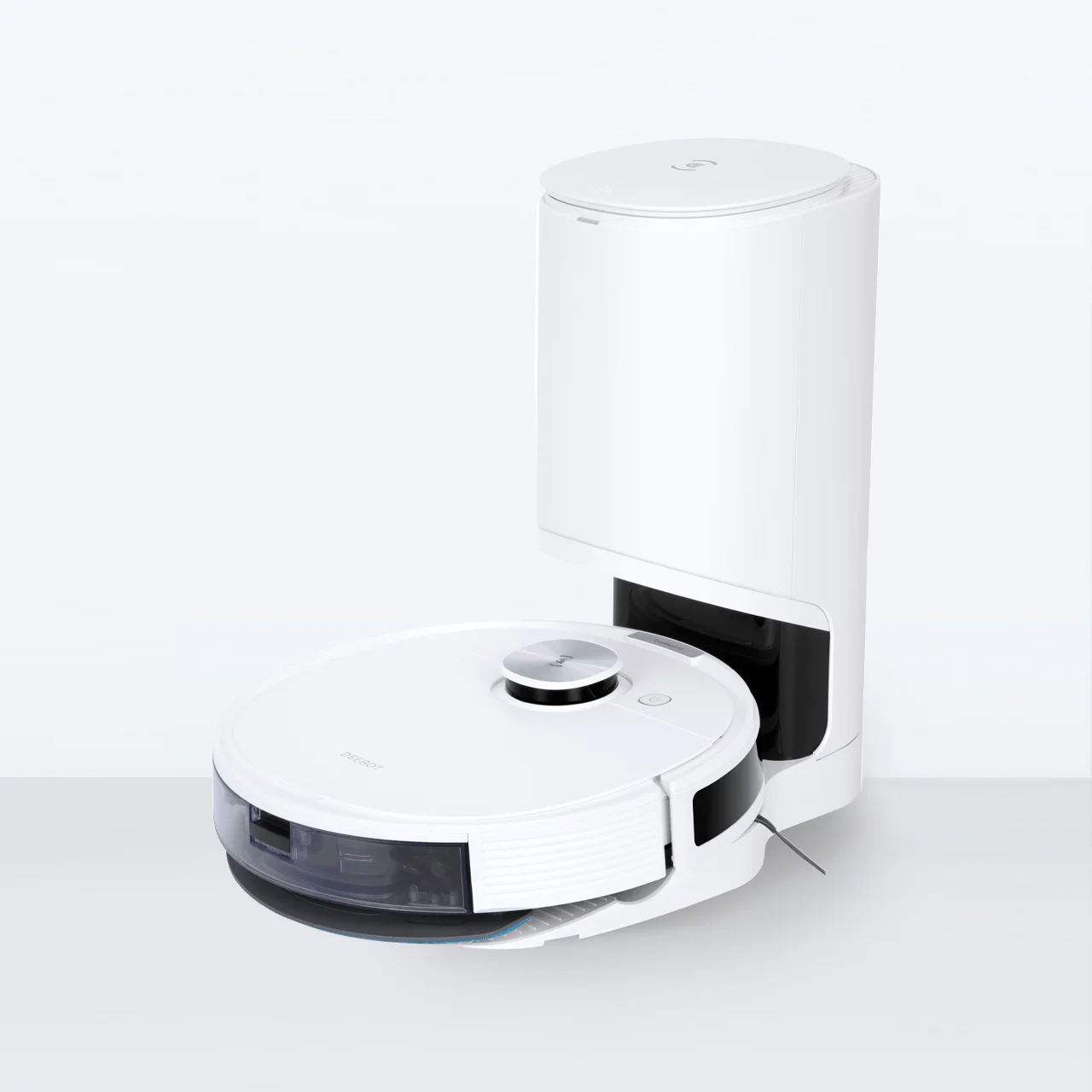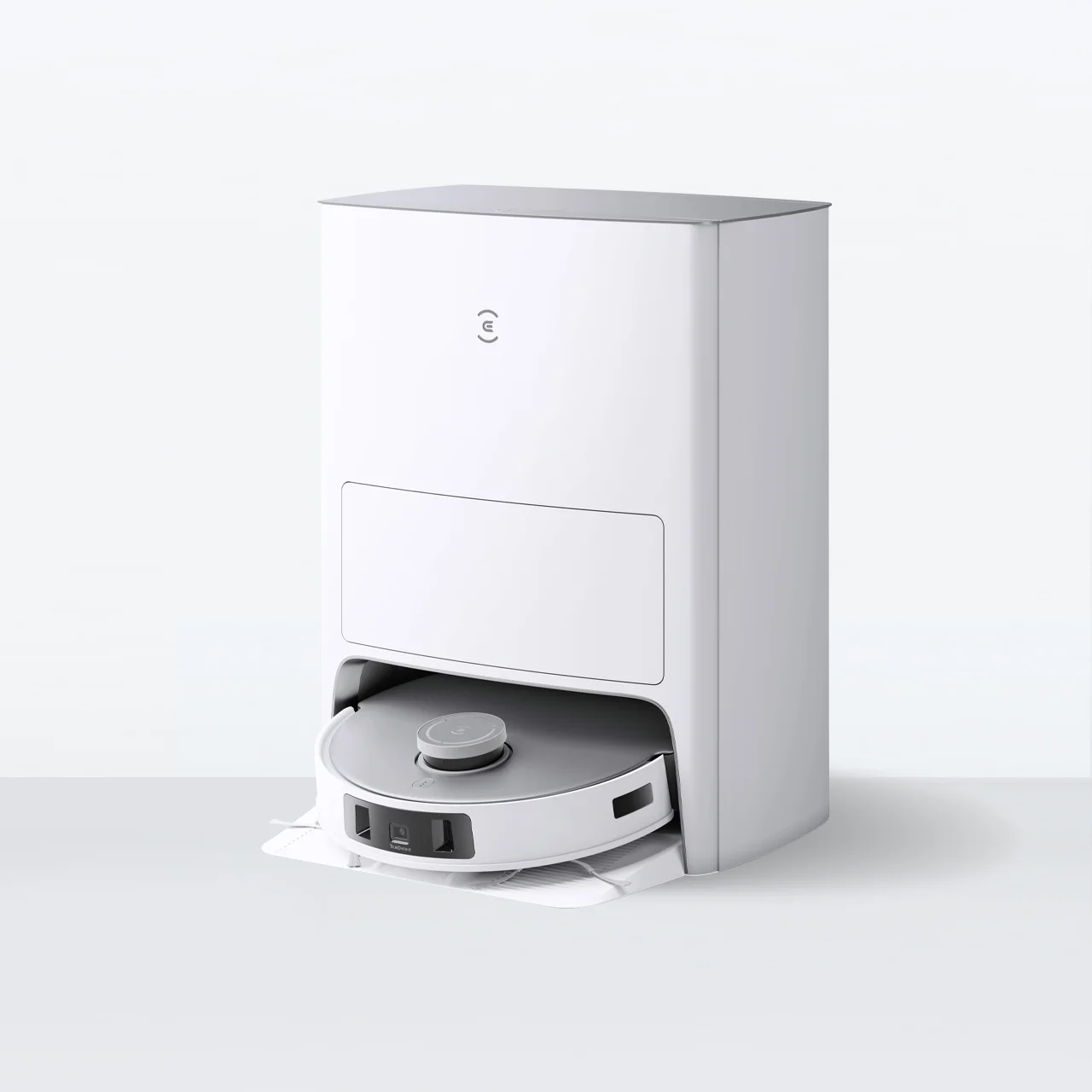
The history of robot vacuums has been a round one. The first robot vacuum ever to be introduced to the public was round. Not yet equipped with modern intelligent navigation sensors, if it got stuck in a tight corner, it could just keep turning around, probing until it found open space to travel.
Then, alternatively shaped robot vacuums entered the scene. D-shaped and square robotic vacuums have staked the claim that they are better suited for reaching ground that went uncovered by the first smart vacuums: room edges and corners. But is it just a gimmick? In fact, there are pros and cons of each shape. In this article, let’s determine which is better: round or square vacuum robots.
Features Of Round Robot Vacuums
The round shape of the original robot vacuum came about out of necessity. The agile profile made up what the first devices lacked in the ability to understand their surroundings; it made it more adaptable.
The pros of rotund robot vacuum cleaners are that they can pivot on the spot and more easily manoeuvre around irregularly shaped obstacles like furniture legs. They can utilise a range of cleaning paths, from zigzag to straight line to spiral to ‘bump and go’. However, roundness can be limiting in a world with corners. Roundness may also affect how much square footage the device can cover in one go.
Features Of Square Robot Vacuums
When talking about square robot vacuums, it’s more accurate to say it’s a square shape with rounded edges. Square robot vacuums reach corners and walls where their round counterparts falter. The angular design is well-suited for straight-line navigation. Yet, their turning radius is larger than round robot vacuums, requiring more open space to navigate effectively. Another con is that there aren’t as many square robot vacuums on the market, which impacts price points and how many spiffy features they have because their market isn’t as developed yet.
Square vs. Round Automatic Vacuums

Manoeuvrability
Round floor vacuum cleaners are better at getting themselves out of narrow spaces. Because the shape is uniform, its process of negotiating a path around obstacles is smoother. For instance, circular robot vacuums don’t have to move their corners out of the way to steer clear of a chair leg. Non-round models are more likely to get themselves stuck and at the very least need to perform more movements to extract themselves from tight spaces.
Coverage
A D-shaped or square robot vacuum with the same radius as a round one can cover more in a single pass just as a result of having a bit more space for brush coverage on the long edge or edges. In terms of cleaning under furnishings, shape doesn’t affect this aspect much as long as the device is thin enough to clear the bottom of furniture.

Efficiency
One of the most attractive features of smart vacuums are their ability to free homeowners from spending time on cleaning. Indeed, automatic vacuums with a more angular shape may cover a larger area with fewer passes, reducing the overall time required. However, this is only faster if the device isn’t stopping for other reasons. And since square automatic vacuums haven’t developed as much as round versions, they could potentially be buggy and pause without warning.
Edge And Corner Cleaning
One of the most talked-about advantages square vacuum robots have over their round counterparts is reaching more debris along edges of walls, baseboards and furniture. Some round models’ brushes are installed in the middle of the robot, further limiting their scope along walls.
Besides the middle brush roll, DEEBOT robot vacuums from ECOVACS have brushes extending out the front or back to extend their reach. Newer generations such as the DEEBOT T20 OMNI feature Edge Deep Cleaning, where the outstretched mops clean within 3mm of room edges for a closer clean than any DEEBOTs before it.

Battery Life
Square robot vacuums can have a larger surface area and potentially weigh more, requiring more energy to run and impacting runtime on a full charge. Yet, the vacuum robot’s battery life also depends on factors like battery capacity and motor efficiency so it’s difficult to make a generalisation about battery life based on robot vacuum cleaner shape. As a guideline, DEEBOT vacuums are powered by 5,200mAh Li-ion batteries offering a maximum runtime of 300 minutes1. In contrast, one particular square robot vacuum model can clean for up to 100 minutes.
Dustbin Capacity
Another aspect in which round and square robotic floor cleaners vary is the size of onboard dustbin. Square robot vacuums typically have a larger dustbin simply because the square shape allows it to fit. However, the onboard dustbin can be supplemented with auto-empty stations. This is when the debris is offloaded into the base station, which is in turn equipped with a higher capacity dustbin. These stations reduce the frequency of manual emptying every session to every 1-2 months2, like with DEEBOTs’ OMNI Station and Auto-Empty Station.

Advanced Features
There are more round automatic vacuum cleaners on the market than square robot vacuum cleaners, meaning that just in terms of numbers the latter shape has had more time to mature. In general, this can mean that circular robot vacuums may have more advanced or a wider range of features on a given model. While most smart vacuums are compatible with smart speakers like Google Home and Amazon Alexa, there are other niftier features coming out on new models like voice control, the ability to set cleaning schedules or multi-functional charging docks that wash and dry their own mops.
Value For Money
Round robot vacuums are common and have been around for a longer time. In practice, there are more models available at various price points, making them a good value for money depending on the features you are looking for. As a guideline, vacuum robots in a circular shape can range anywhere in price from AU$300 to AU$2,000, while those in a square or D shape can range from AU$100 to AU$400.
Aesthetic Appeal
This point of comparison between round and square smart vacuums is more subjective. Some users might prefer one shape over the other, with some consumers opting for the sleeker circle.
How To Choose A Round Or Square Robot Vacuum

Which shape of robot vacuum is better for you? That comes down to your cleaning requirements and lifestyle. Take into account:
- Room layout: Do you have lots of furniture and appliances or is the space easy to navigate? A round vacuum is probably more suitable for a difficult-to-navigate layout.
- Home size: Is there lots of open, unhindered space or is the home compact? A square robot vacuum will likely do well in a sizeable home.
- Level of hands-freeness: Round cleaning robots offer more cutting-edge features that increase user-friendliness like self-emptying stations and auto-washing mop pads.
- Special requirements: If you’re looking for a smart vacuum cleaner for a specific purpose, like sucking up copious amounts of pet hair, cleaning carpets or simultaneous vacuum-mopping, you’re more likely to find a device that’s fine-tuned for that particular use in a round shape because there are more round robot vacs.
FAQ
Are there square robot vacuums?
Yes, there are square robot vacuums which are ideal for closely cleaning corners and sides of walls. However, there aren’t as many square-shaped auto vacuums as round-shaped auto vacuums.
Why are most robot vacuums round?
Most robotic vacuum cleaners are round because it’s easier for round smart vacuums to navigate around objects, a circle is the optimal shape for escaping dead-ends, and they inflict less damage if they do run into obstacles. The first robot vacuums could rely less on navigational and mapping abilities because their shape allowed them to turn on the spot and find free space.
Which is better, square or round robotic vacuums?
A square or round floor vacuum cleaner could be better depending on your needs. If you need a device that can clean baseboards and corners, a square automatic vacuum could be better. If you need a device that can deftly swivel around obstacles, has a longer battery life and potentially more special features for use cases like suctioning up pet fur or cleaning rugs, then a round auto vacuum may be the better option.
Disclaimer(s):
- 300 minutes: The DEEBOT N10 features an upgraded 5,200mAh battery, giving it a maximum runtime of 300 minutes on a single charge while sweeping on silent mode on hard floors.
- 1 to 2 months: This data comes from ECOVACS laboratory, which is based on the statistics of the number of times users disposed of traditional dustbins. The actual performance is subject to change due to frequency and cleaning area. DEEBOT X1 PLUS, T10 PLUS come with 3.2L disposable dust bag.
Related Products









